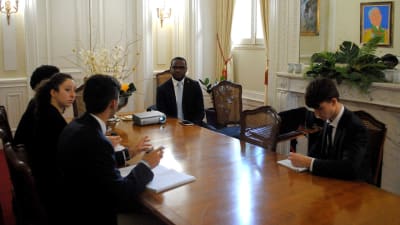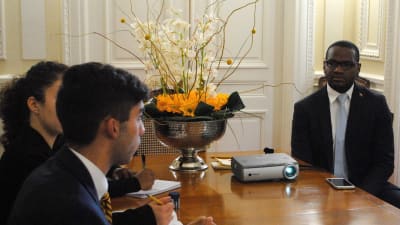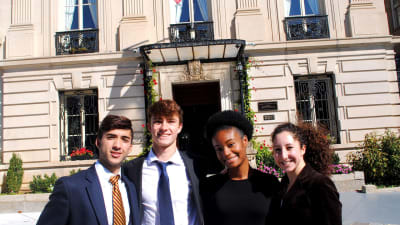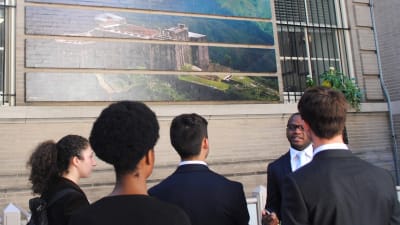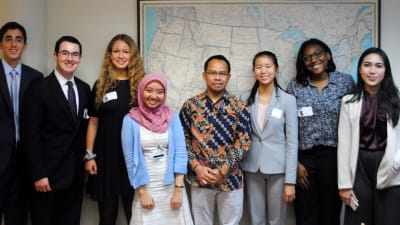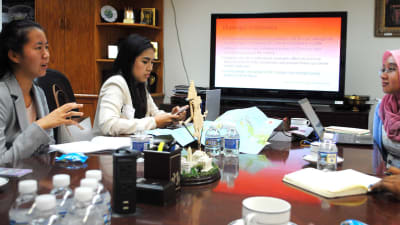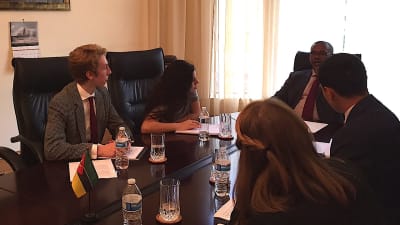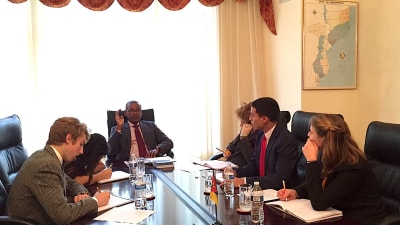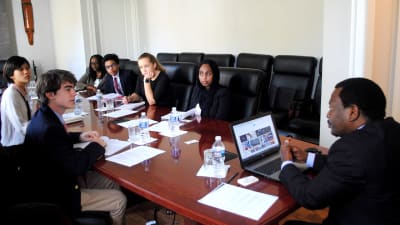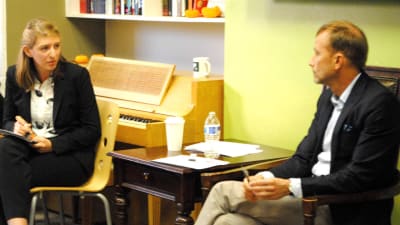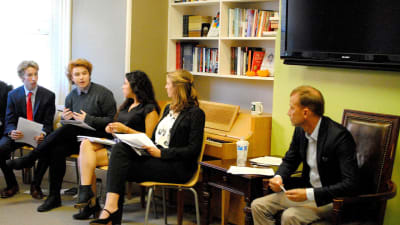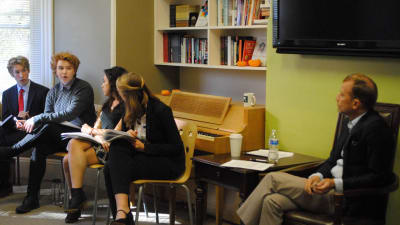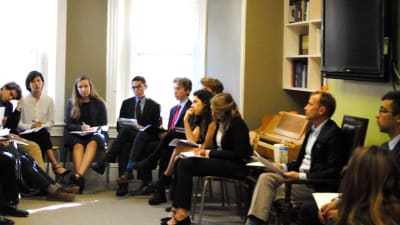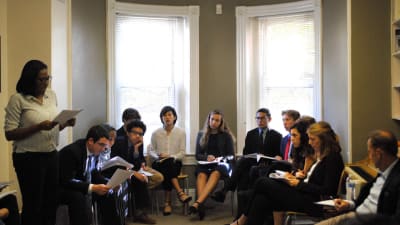Amb. Mark Dybul returns for Global HIV/AIDS Master Class
Imagine you are in charge of U.S. HIV/AIDS funding for Haiti…or Indonesia…or Botswana…or any of the countries that now receive support from PEPFAR (President’s Emergency Plan for AIDS Relief). It is time to present a five-year plan for that country to PEPFAR’s head, the U.S. Global AIDS Coordinator. Will you recommend more funding? Where will the money come from? Why does your country deserve those funds more than others? Will you reallocate it? How can you be sure your reallocation will save more lives? Will you reduce funding? Why?
This was the challenge that five small groups of our students faced this past week at SEGL. On Monday, science teacher Alvin Fridie presented an entertaining mini-lab on how viruses spread, and students learned basic facts about the disease around the world and in DC (where HIV/AIDS is well past epidemic levels). On Wednesday, each group visited the Embassy of its assigned country (Haiti, Indonesia, Botswana, Mozambique, and Zambia), meeting with high-ranking officials to hear that country’s point of view.
On Friday morning we welcomed longtime SEGL favorite Ambassador Mark Dybul for the third Master Class of the semester. Dybul was the principal architect and primary implementer of PEPFAR, the Bush Administration’s game-changing effort to combat HIV/AIDS around the world. For the past five years he has been in Geneva, leading The Global Fund to Fight AIDS, Tuberculosis, and Malaria. He recently returned to DC to work at Georgetown University. One by one, the groups presented their two-page policy memos, written in the style required by the State Department, and one by one, Dybul engaged each cohort with Socratic questions and ethical dilemmas. For example: should Indonesia receive funding when its economy is booming? Should geopolitical interests impact funding for humanitarian causes? What argument could a Member of Congress make to convince a constituent that her tax dollars are best spent overseas in a country she has never heard of at a time when the U.S. faces economic turmoil?
The results of the discussion were powerful. In our reflective conversation afterwards, the students not only noted the ethical quandaries that Dybul picked out, but also the critical thinking skills required to do well in these circumstances: determining what information is truly important, understanding how to answer questions directly (and on the spot!), and anticipating what the long term consequences of a decision is.
The exercise will be valuable as the students tackle their next challenge: the capstone collaborative policy document!



